第24章 MONEY OR SIMPLE CIRCULATION(5)
Money as money of account may exist only nominally,while actually existing money may be coined according to an entirely different standard.Thus in many of the English colonies in North America,the money in circulation consisted of Spanish and Portuguese coins till late in the eighteenth century,whereas the money of account was everywhere the same as in England.[8]
Because as standard of price gold is expressed by the same names of account as the prices of commodities --for example £317s.10/2d.
may denote an ounce of gold just as well as a ton of iron --these names of account are called the mint-price of gold.Thus the queer notion arose that gold is estimated in its own material and that,unlike all other commodities,its price is fixed by the State.The establishing of names of account for definite weights of gold was mistaken for the establishing of the value of these weights.[9]Gold has neither a fixed price nor any price at all,when it is a factor in the determination of prices and therefore functions as money of account.In order to have a price,in other words to be expressed in terms of a specific commodity functioning as the universal equivalent,this other commodity would have to play the same exclusive role in the process of circulation as gold.But two commodities which exclude all other commodities would exclude each other as well.Consequently,wherever silver and gold exist side by side as legal money,i.e.,as measure of value,the vain attempt has always been made to treat them as one and the same substance .If one assumes hat a given labour-time is invariably materialised in the same proportion in silver and gold,then one assumes,in fact,that silver and gold are the same substance,and that silver,the less valuable metal,represents a constant fraction of gold.The history of the monetary system in England from the reign of Edward III up to the time of George II consists of a continuous series of disturbances caused by conflict between the legally established ratio between the values of gold and silver and the actual fluctuations in their value.Sometimes the value of gold was too high,sometimes that of silver.The metal whose value was estimated at too low a rate was withdrawn from circulation,melted down and exported.The value-ratio of the two metals was then once again changed by law;but soon the new nominal value in its turn clashed with the actual value-ratio.In our own time,the slight and short-lived fall in the value of gold as compared with silver,brought about by the Indian and Chinese demand for silver,produced the same phenomenon on a large scale in France --the export of silver and the elimination of silver from the sphere of circulation by gold.During the years 1855,1856and 1857,the excess of France's gold imports over her gold exports amounted to £41,580,000,while the excess of~her silver exports over silver imports came to £34,704,000.[10]In countries like France,where both metals are legally sanctioned measures of value and both are accepted as legal tender,where moreover every person can pay in the one or the other metal as he pleases,the metal whose value rises is in fact at a premium,and its price like that of any other commodity is measured in terms of the over-rated metal,which thus serves alone as the measure of value.All historical experience in this sphere simply shows that,where two commodities function as legally valid measures of value,it is always one of them only which actually maintains this position.[11]
FOOTNOTES
1.
Aristotle does indeed realise that the exchange-value of commodities is antecedent to the prices of commodities:"That exchange took place thus before there was money is plain;for it makes no difference whether it is five beds that exchange for a house,or the money value of five beds."On the other hand,since it is only in price that commodities possess the form of exchange-value in relation to one another,he makes them commensurable by means of money."This is why all goods must have a price set on them;for then there will always be exchange,and if so,association of man with man.Money,then,acting as a measure,makes goods commensurate and equates them;for neither would there have been association if there were not exchange,nor exchange if there were not equality,nor equality if there were not commensurability."Aristotle is aware of the fact that the different things measured by money are entirely incommensurable magnitudes.What he seeks is the oneness of commodities as exchange-values,and since he lived in ancient Greece it was impossible for him to find it.He extricates himself from this predicament by making essentially incommensurable things commensurable --so far as this is necessary for practical needs --by means of money.
"Now in truth it is impossible that things differing so much should become commensurate,but with reference to demand they may become so sufficiently"(Aristoteles Ethica Nicomachea ,L.5,C.8,edit.Bekkeri,Oxonii,1837).[The English text is from Aristotle --Ethica Nicomachea .
Book V,Chapter 8,translation by W.D.Ross,Oxford,1925,1133b.]
2.
The strange fact that the ounce of gold as the standard of money in England is not divided into aliquot parts is accounted for as follows:"Our coinage was originally adapted to the employment of silver only --hence an ounce of silver can always be divided into a certain aliquot number of pieces of coin,but,as gold was introduced at a later period into a coinage adapted only to silver an ounce of gold cannot be coined into an aliquot number of pieces"(James Maclaren,A Sketch of the History of the Currency ,London,1858,p.16).